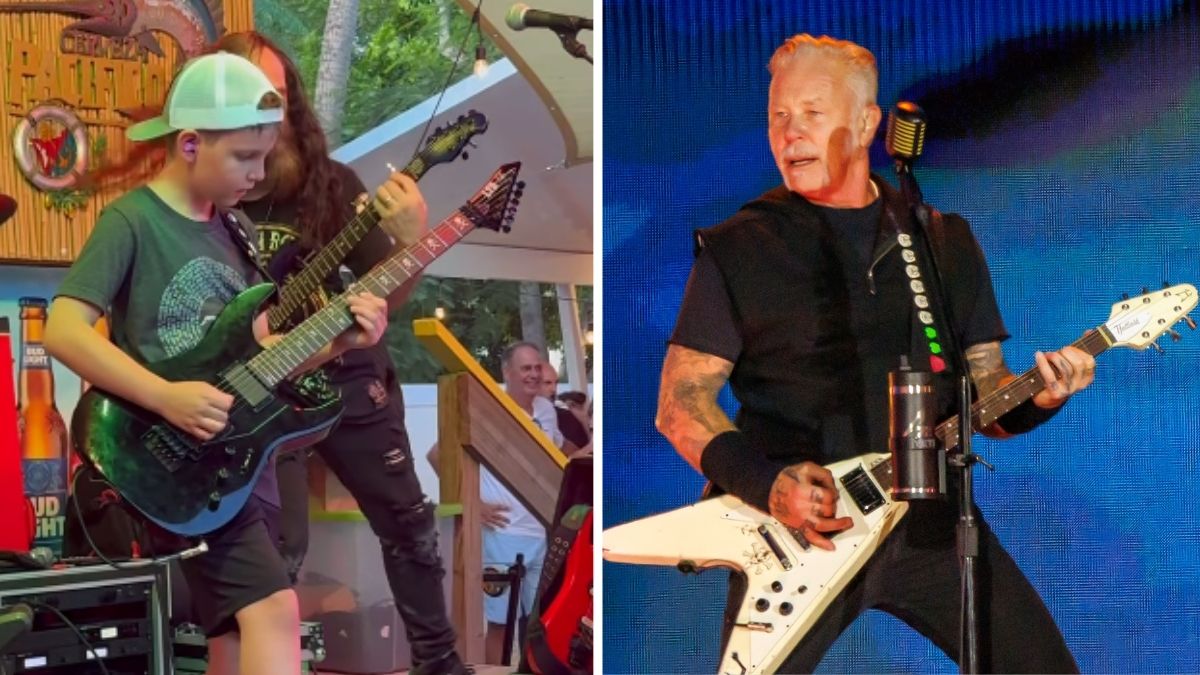“I’ve never had a guitar lesson. I was born with a certain technique that many people, namely Tommy Thayer, can’t duplicate”: Kiss guitar icon Ace Frehley on why new album 10,000 Volts is the best he’s ever made – and a wake-up call for his ex-bandmates
With the help of Trixter’s Steve Brown, the Kiss guitar legend reckons he’s made the best record of his career. He explains why 10,000 Volts debunks his former bandmates’ claims, what made the Fender Strat a recording mainstay throughout his career – and why Yngwie Malmsteen and Eddie Van Halen’s solos leave him wondering, ‘What the f**k just happened?’
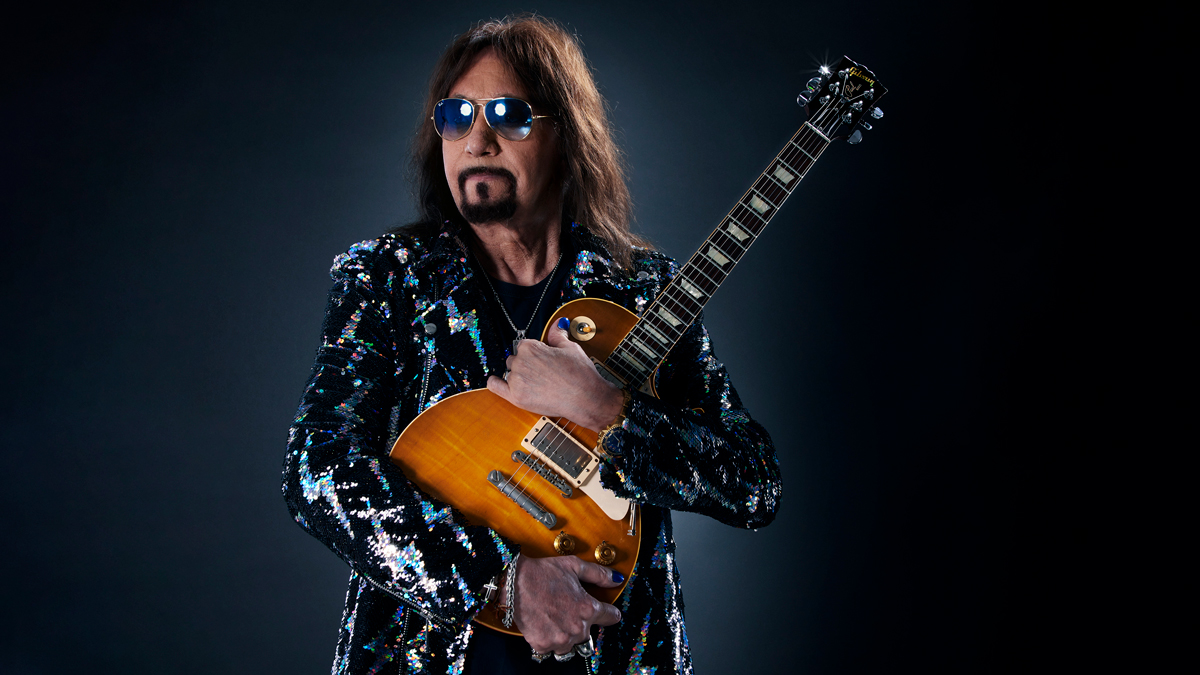
All the latest guitar news, interviews, lessons, reviews, deals and more, direct to your inbox!
You are now subscribed
Your newsletter sign-up was successful
Deep within New Jersey’s suburbs, while comfortably sitting on the blue velvet sofa in his home studio – which literally looks like a spaceship – Ace Frehley is waiting. Surrounded by guitars of all shapes and sizes and with a sheepish smile, he cackles, ‘Hey, how long is this gonna take?’
Of course, he’s joking. He knows he’s got a record – 10,000 Volts – to promote, which is coming in hot as its lead single has captivated the imaginations of Kiss fans around the globe.
“I was on YouTube last night and I noticed that the music video for 10,000 Volts is creeping up on half a million views,” Frehley says. “Then I checked on a video of one of Kiss’s final live shows, and they didn't have close to that.”
As 10,000 Volts begins, Kiss’s end (speaking of tours at any rate) sadly didn’t include Frehley. “Paul Stanley and Gene Simmons didn’t invite me,” the original guitarist insists. “The stuff with them having me and Peter Criss come for the last show was just to sell tickets.”
Those revelations aside, Frehley’s mood is upbeat, as is that of longtime Trixter guitarist Steve Brown, who played an integral role in 10,000 Volts as a songwriter and producer.
“We worked so well together,” Brown beams. “Once we got going, we knew we were doing something that would take what Ace had done and kick it up a few notches. The solos are killer – but Ace said early on, ‘These songs need to be around three minutes.’ He was right, because it left us with a punchy record.”
Frehley adds: “Not to focus on the past, but the songs on 10,000 Volts are reminiscent of the hard yet pop rock songs from Kiss’s Rock and Roll Over. There’s no bullshit in any of these songs. There’s no filler and zero wasted space. Steve was great about helping me trim the fat.”
All the latest guitar news, interviews, lessons, reviews, deals and more, direct to your inbox!
The frantic bursts of lighting that Frehley has made his trademark are tattooed across the album’s tracklisting. Like the Kiss Army members who wear red and yellow patches, Frehley has stamped his Les Paul-inspired licks across the forehead of 10,000 Volts’ 11 tracks.
He shrugs when asked how he summons such ghosts of over-amplified glories past: “I’m a blues-based player. From day one, that’s what I gravitated to. I have always been into players who are powerful but who wrote guitar solos that would repeat a line or lick two or three times. Like I said, I look to write solos as songs inside of a song. That’s what a guitar solo is to me.”
With grand declarations that the album will make his former bandmates eat their words, and that it’s the best record he’s made since his 1978 self-titled solo debut, he has a lot to live up to. But then again, he’s ‘Ace fucking Frehley’ – so who better to brandish the bold with a smoking Les Paul in hand?
And he might be onto something: listening to 10,000 Volts, one can’t help but curb the nostalgia for his past Kiss exploits, and even his well-worn Frehley’s Comet material, and soak up the inherent joy and songcraft present throughout.
For now, it appears that he’s back with a bullet. Ever casual, if not consciously aloof, his eyes widen and he says: “Are you saying I still got it?” before disintegrating into a signature bout of off-the-hook laughter.
“Look,” he says, suddenly serious. “It’s a joy to be making music that still means something. I care about what I’m doing, and I care about my fans a lot. I must give a lot of credit to Steve for making this record with me.
“But based on the success of reviews of the first single, it’s great to see that what I’m doing still fucking means something in the rock world and the music industry.”
10,000 Volts has resonated with your fans, and your enthusiasm throughout the record is apparent. What spurred it on?
Frehley: “It was mostly the combination of Steve and me who brought completely new elements. Most of the harmonies are Steve’s, and his songwriting and lyrics, along with my guitar work and his combined, took 10,000 Volts to another level.”
Brown: “It goes back to the first day we got together to work on Walkin’ on the Moon. I came up with some ideas, and Ace’s fiancée, Lara, was very persistent about us working together, so we got together.
“It was a dream. I’m the biggest Ace fan in the world, so the ideas I had were ones I thought would suit him. And when we got together, it was just magic.”
Frehley: “Steve forgets one thing – he sent me Walkin’ on the Moon with different lyrics, and I came up with an idea out of his lyrics, which featured the phrase, ‘Walkin' on the Moon,’ which I felt suited me so well.”
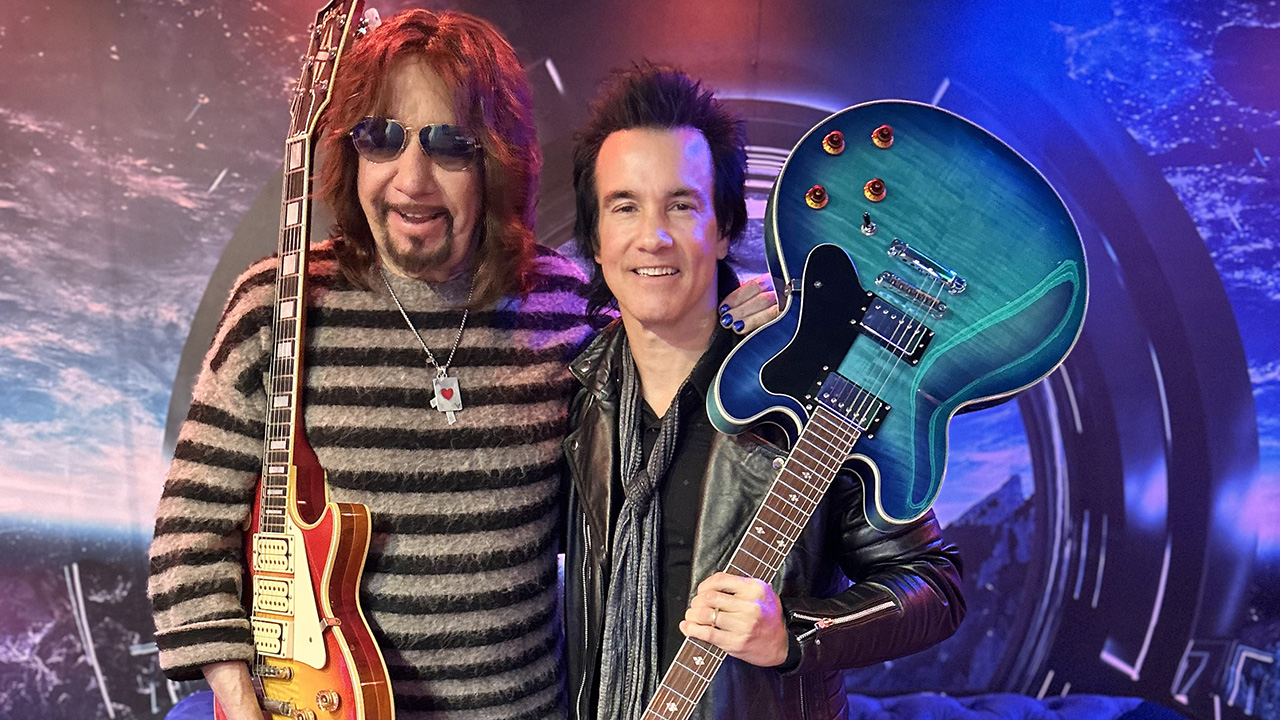
Given your track record, was it difficult meshing with Steve from that perspective?
Frehley: “No, it was just a matter of putting in the work. It took us a year to do this record. We had so much fun making this record. I would go to Steve’s homes studio, he would come to mine; doing it that way meant a lot of stress was relieved. You just had two musicians, singers, and guitarists having fun, drinking coffee and laughing.”
Brown: “We knew we had something special after we sent Walkin’ on the Moon to the record label and they were blown away. So we devised a game plan, looked each other in the eye, and said, ‘We’ve got to trust each other.’
“We did that; we made a record to the best of our abilities and locked in on a goal to make the best record Ace has ever made… or at least since the ’78 solo record.”
The chemistry between you two is evident – but was it difficult managing your lofty expectations?
Brown: “After we did Walkin’ on the Moon and Fightin’ for Life, we knew the combination of us two was undeniable. With me producing and he and I both writing these songs, we found something special, like the ’78 record. There was no ego with this.”
Frehley: “We did look each other in the eye – there was a trust factor. On the first day, I said, ‘Dude, if you trust me, I fucking promise you we’re going to make the best record we can make.’ And we did. It’s possibly the best record of my career.”
And it’s well-timed, since there's a perception generated by your past bandmates that you're not creative.
Frehley: “Paul and Gene have tried to destroy my reputation over the years – we know that. And unfortunately for them, 10,000 Volts is going to make them look like imbeciles.
“Kiss hasn’t put out a record since 2012 [Monster], and here I am, 17 years sober, and it’s my sixth record since leaving Kiss. I keep chugging along, and nobody can stop me. Creating amazing music is the best way to combat someone putting you down. That’s how I shut them up.”
As you're creating that music, what does your process look like on a song like Cosmic Heart, for example?
Frehley: “That was the last song we wrote; the solo came out incredible. I listened to it an hour ago, and it’s catchy. It will be one of the singles, along with 10,000 Volts, Walkin’ on the Moon and Cherry Medicine.
“But people always ask me about my formula, and I don’t have one. Since I was a kid, I’ve stuck with the same thing: just me plugging a Gibson Les Paul into a Marshall amp cranked to 10! People always tell me my tone is so distinct and recognizable; but it’s more that I know how to adjust the pickups and how to get the harmonics I did.”
So it’s all instinct?
Frehley: “It is. I’ve never had a guitar lesson. I was born with a certain technique that many people, namely Tommy Thayer, can’t duplicate. And with Tommy, yeah… that’s over now. It’s back to the breadline for him!”
Brown: “A lot of shots are fired at Ace, but he’s mostly taken the humble route. He’s one of the greats like Eddie Van Halen, Jimmy Page, and Joe Perry. Like those guys, magic happens when you put a guitar in his hands and he plays through that rig.
“But what’s cool is Ace is so open to new gear, technology, and pedals, even if he doesn't use them that much. No matter what he uses, it always sounds like Ace Frehley.”
Ace is so open to new gear, technology, and pedals, even if he doesn't use them that much. No matter what he uses, it always sounds like Ace Frehley
Steve Brown
Has it been hard to stay humble while Paul and Gene have been firing so many shots?
Frehley: “I’ve always been the kind of guy to let the music do the talking, you know? The less I say… I think that sometimes, that’s the best route to go.
“Paul and Gene always like to elaborate and put people down. Not only me – if you listen and read back to old interviews through the years, they’re constantly putting other musicians down too. Maybe it makes them feel better, or perhaps it’s because they’re just insecure. I don’t know the reason.”
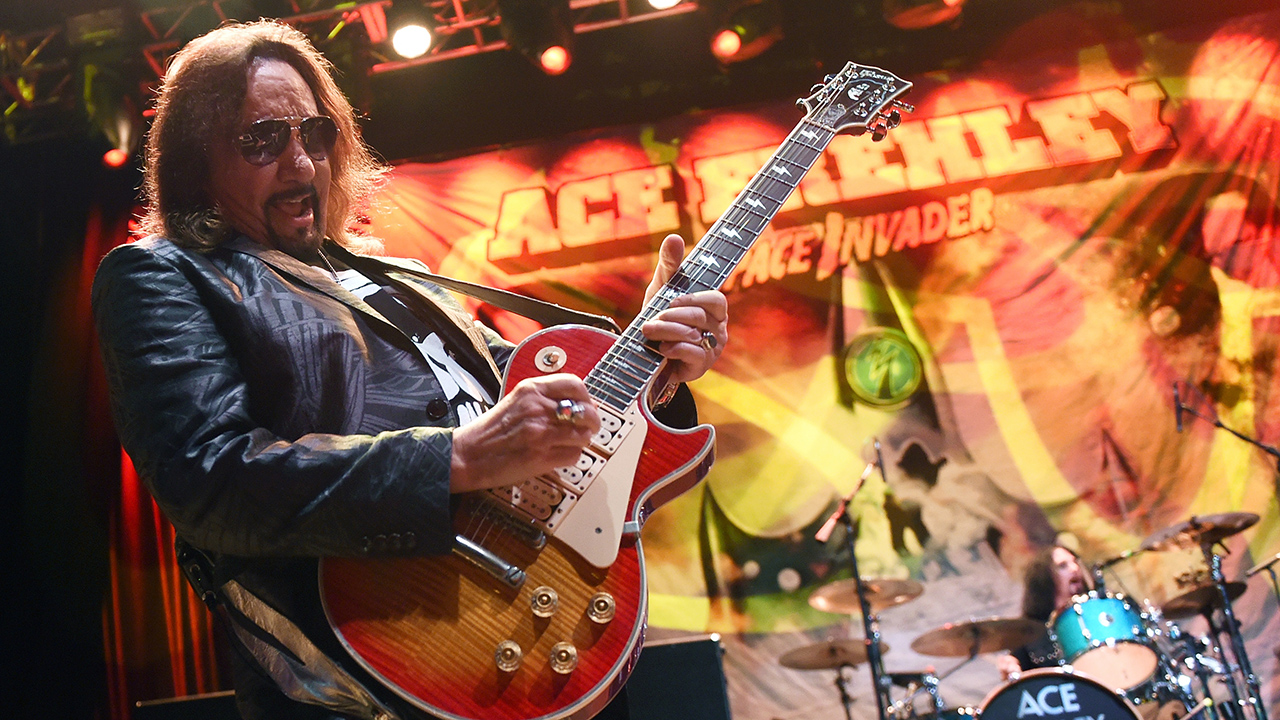
One thing I notice about 10,000 Volts is that it’s not just the singles you mentioned that are great, but the latter tracks like Blinded are, too.
Frehley: “There was an unexpected element to that because the acapella thing at the start came after I called Steve up and recommended that we do it out of nowhere. He wasn’t sure at first, but after we did it, it was clear that it totally made the song special.”
Brown: “Yeah, I said, ‘Are you sure you really wanna do that?’ Ace was like, ‘Yeah, it’ll be like Carry on Wayward Son or You Give Love a Bad Name.’ And he was right – it’s fucking great and another example of something you don’t often hear on Ace records.”
Frehley: “That, along with the commentary on the A.I. thing, makes Blinded really cool. Steve had this idea that Blinded should be about panic attacks, but I said, ‘Let's go the route of being socially conscious about A.I.’ so that’s what it’s about – the perils of artificial intelligence.”
The result is a record with so many solos that my fans will remember – they’re shorter and catchy like my ’78 solo record or the ‘70s Kiss records – songs within the songs
Ace Frehley
As good as the songwriting and vocals are here, the guitar solos throughout are some of the best we’ve heard from you in years.
Frehley: “Well, thank you. But it’s funny – I’m not one to commit things to memory all the time; I’m the kind of guy who flies by the seat of his pants. People will ask me what I did last week, and I’m like, ‘I don’t remember!’
“The bottom line is that spontaneity and living in the now helps me when I’m playing solos. If I empty my fucking mind, I’m much better off!”
Brown: “When we were doing the solos I’d say, ‘Okay, Ace, do your thing!’ We’d hit record and let him go. We captured so many moments of brilliance – but other times, Ace would do a few takes and sit down and deconstruct the solos to make them better.
“He knows what he needs and what the sound must be. There were so many times when he’d just grab a guitar, plug in, and rip off these insane solos. I’d be like, ‘You son of a bitch! That was fucking great!’”
You mentioned the Les Paul/Marshall setup you’re known for. But did you use anything else?
Frehley: “I just got this cool blue-colored Les Paul, and I used that a lot on the solos. But that aside, I had a few Fender Strats for rhythm tracks. I never use those live, but I’ve said it before – even in the Kiss days, I’d use Fender Strats in the studio.
“My Marshall is from the ‘70s, and I’ve got a cabinet with it that’s fucking older than I am! But on some of the solos, I broke out my old Fender Tweed Champ, which I fucking love.”
Aside from a bit of fuzz in the late ‘70s, Ace isn't known much for pedal use.
Brown: “We definitely wanted to add things to the mix to provide a spark. On the instrumental, Stratosphere, that was the first time Ace had ever used a DigiTech FreqOut, a sustain pedal that gives you a vibe like a Sustainiac pickup. We used that on Cosmic Heart, too.”
Frehley: “The goal was to do what I do, but with every solo and riff, we wanted to color the songs with different tones that would complement my natural style.
“The result is a record with so many solos that my fans will remember – they’re shorter and catchy, which is by design. It’s like my ’78 solo record or the ‘70s Kiss records – songs within the songs.”
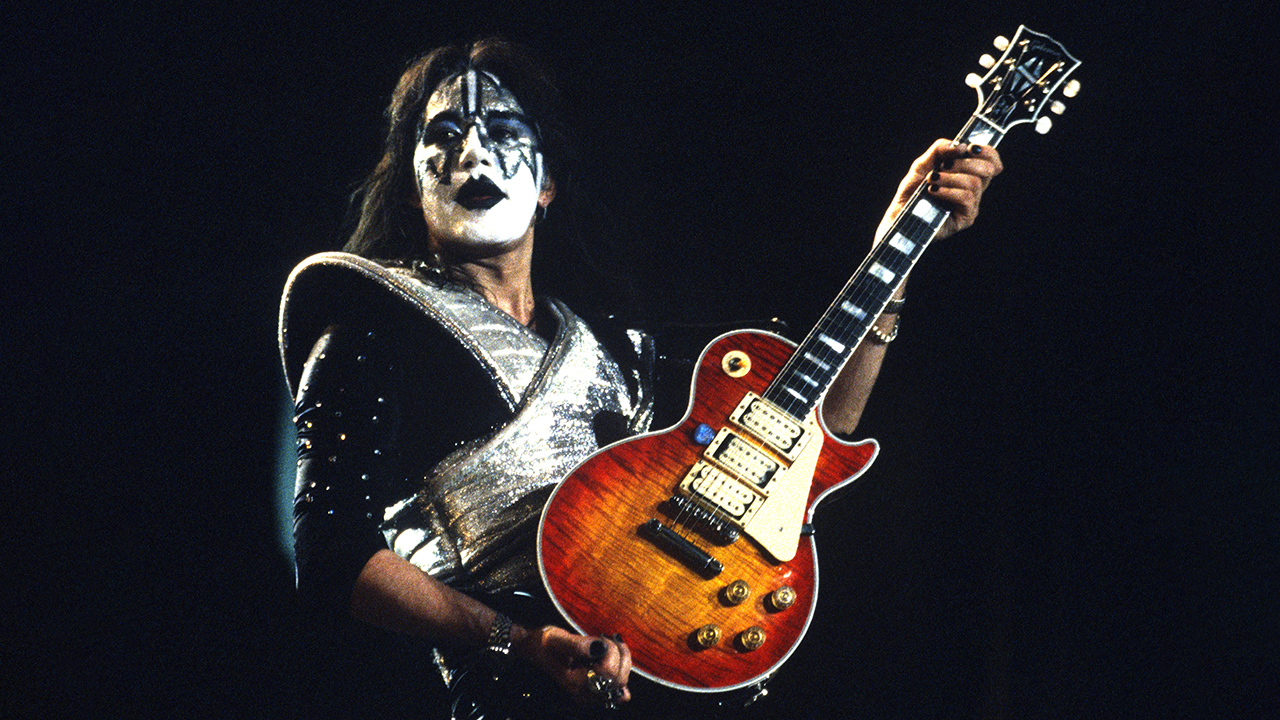
Maybe that’s the approach that’s difficult to define?
Frehley: “The best solos are the ones you can sing. I love Yngwie Malmsteen and Eddie Van Halen, but after their solos, you’re often going, ‘What the fuck just happened?’
“For me, it’s about melodic and simple stuff. I understand melody; I don’t need 500 notes between each bar. I’m a blues-based guitarist, and that’s the methodology I always go back to.”
What does it mean to have made an album like 10,000 Volts at this stage of your career?
Frehley: “I attribute all of this to healthy living. I’m 17 years sober, and now I’m working with another great guitarist and songwriter in Steve. We’re not just musicians on this record – we’re good friends too.
“We put the pedal to the metal, and we did the best possible songs that we could. We made some hard decisions and left a lot of songs off. This record reflects how my life has gone – it’s full of spontaneity and some solos I’m very proud of.
Brown: “It’s been one of the most fulfilling experiences of my career. Ace has always been my hero, but now he’s a good friend. This record means the world to me. At 72, Ace is making the best music of his career.
“Kind of how the Rolling Stones worked with Andrew Watt on Hackney Diamonds, Ace worked with me on 10,000 Volts, and that younger vision made all the difference. That’s the X factor.
“I can’t wait to see Ace scrap some of the Kiss songs he doesn’t need to play – because the songs on 10,000 Volts were built to be heard live, man.”
- 10,000 Volts is released in February 2024 and available to preorder now.
Andrew Daly is an iced-coffee-addicted, oddball Telecaster-playing, alfredo pasta-loving journalist from Long Island, NY, who, in addition to being a contributing writer for Guitar World, scribes for Bass Player, Guitar Player, Guitarist, and MusicRadar. Andrew has interviewed favorites like Ace Frehley, Johnny Marr, Vito Bratta, Bruce Kulick, Joe Perry, Brad Whitford, Tom Morello, Rich Robinson, and Paul Stanley, while his all-time favorite (rhythm player), Keith Richards, continues to elude him.

